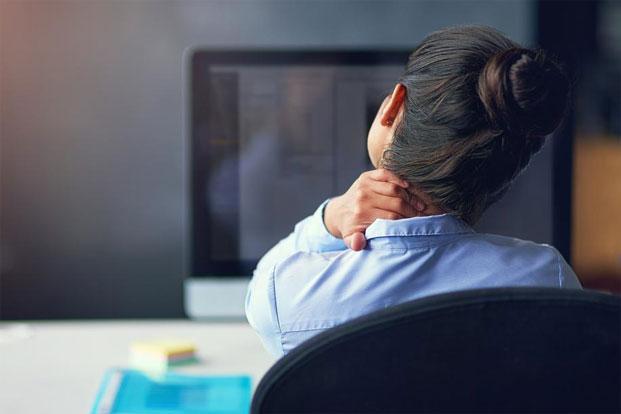Picture this: In your 20s, you skip breakfast to reach office early. Once the meeting is over, you have coffee and two-three biscuits. You work till late evening. A decade later, you struggle to work, for your shoulder and neck are stiff from slouching in front of the computer for too long; you are overweight, constantly tired, depressed and stressed.
Working in a closed office can damage your health in more ways than you can imagine. Here are some work habits you should get rid of at the earliest.
Walk, stand and stretch
On an average, most of us spend 8-10 hours a day in office. This adds up to 50-60 hours every week. And most of these hours are spent sitting. According to a study published last year in the International Journal Of Epidemiology, the lack of movement, whether sitting or standing, is cause for concern. According to a report, “Is Your Job Making You Fat?”, published in 2010 in the journal Preventive Medicine,office workers have become less active over the last three decades—this partly explains the rise in obesity levels.
Navneet Kaur, senior consultant, internal medicine, at the Apollo Spectra Hospitals in New Delhi, says, “Even simple steps like walking up to a colleague to discuss an issue instead of writing an email or calling on the phone can help.”
In fact, a study published in June in Preventing Chronic Disease, another journal, says that changing even one seated meeting per week at work into a walking meeting can increase the work-related physical activity levels of white-collar workers by 10 minutes. “Sitting increases the risk of obesity, diabetes and heart disease even if you exercise later in the day,” says S.K. Gupta, senior consultant cardiologist at the Indraprastha Apollo Hospitals in the Capital. “Heart disease happens when the blood flow is blocked and cholesterol builds up in the arteries, and sitting does both effectively,” he says, adding that it’s essential to stand for 8 minutes and stretch for 2 minutes for every half-hour of sitting.
Remind yourself constantly to get up for a drink, stand in meetings, sit on something uncomfortable and wobbly like an exercise ball or backless stool and be constantly on the move, says Dr Gupta. And always take the stairs.

